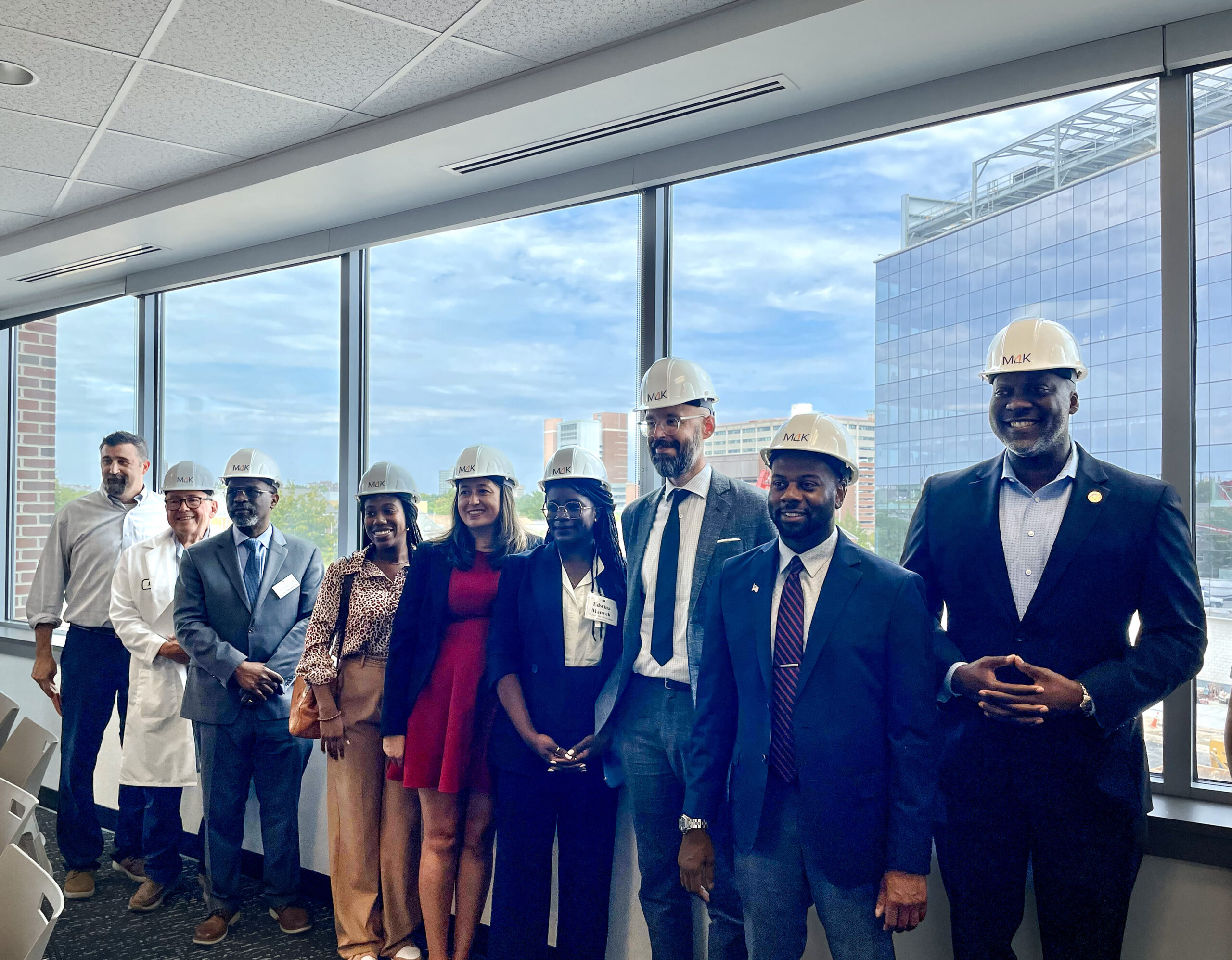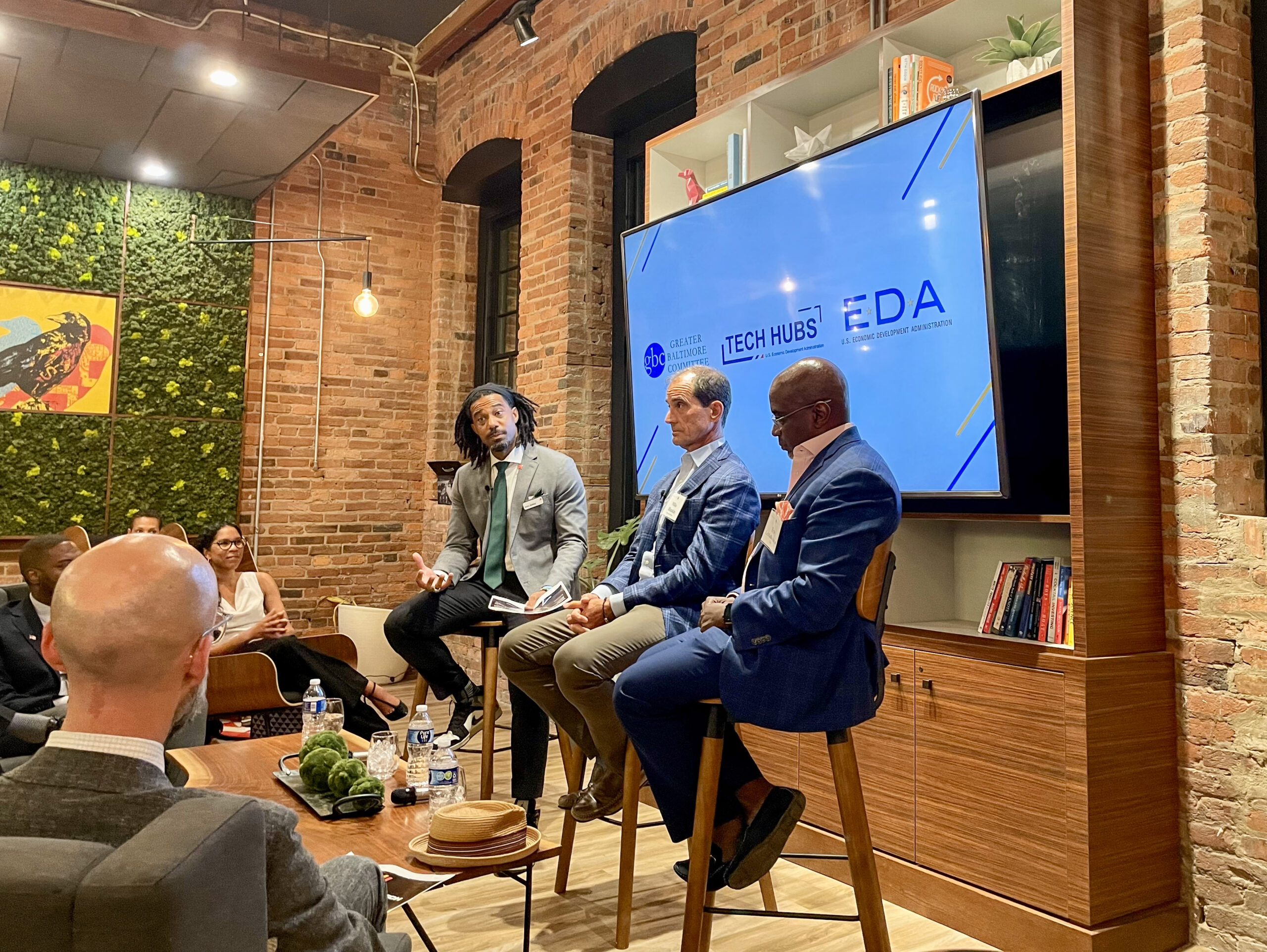Leaders across Baltimore government, business and academia had the chance on Wednesday to show federal officials different innovations across the city.
Representatives from the Economic Development Administration, making their first visit since Baltimore was designated one of the country’s 31 Tech Hubs, toured Morgan State University innovation labs, got a look at the new University of Maryland BioPark 4MLK building and attended several roundtable discussions.
“It’s great to showcase Baltimore in real time,” said Mark Anthony Thomas, the president and CEO of the Greater Baltimore Committee — the lead organization of the region’s Tech Hub consortium.
“For them to truly engage with the ecosystem and see the innovation in person,” he added, “changes what they see as possible.”
The visit follows a disappointment: The EDA, part of the US Department of Commerce, did not select Baltimore for the first round of Tech Hubs funding. The region had submitted a $70 million proposal to boost biomanufacturing capacity, build and mature investor networks for startups and enhance job training. Only 12 regions were awarded funds so far; Congress has only appropriated $541 million of the Tech Hubs’ $10 billion allocation in the CHIPS and Science Act.
Selecting which hubs to fund involved “a lot of hard decisions,” Tech Hubs Director Eric Smith told reporters.
What are Baltimore’s chances for the next round? The region is “very much aligned” with the EDA program in terms of vision, he said. Where Baltimore fell short was in providing specifics about ways the funding would help the region.
The EDA is looking for regions that focus on both global economic competitiveness and national security, while also considering diversity and workforce needs. Baltimore’s biotech and biomanufacturing are “critical” to that competitiveness, per Smith.
“What we’re looking for for the next round of funding is, again, going to be these projects that we’re able to fund that really accelerate growth,” Smith said.
“To not just invent new technologies, but really mature them and deploy them out into the world. I think we’ve seen some of that today and heard a little more tangibly about how that’s working in the region.”
$500k to reapply for future Tech Hubs funding rounds
One of the focuses of Baltimore’s pitch is to be an equitable tech ecosystem, and bringing more manufacturing to the region is one way proposed by consortium leaders to boost that equity.
The industry has an extensive but convoluted history in the city, like at Sparrows Point, a steelmaking hub that employed thousands but polluted local waterways and exposed staff to asbestos-containing products.
Ken Malone, cofounder of Early Charm, which helps companies commercialize their tech, said he wants to loop in new generations to the manufacturing industry through workforce development efforts. He also noted there’s a memory of manufacturing as “dirty,” and said workforce development could change that.

Maryland is implementing workforce development programs in biomanufacturing, like with a partnership with an institute in Dublin to train people in the field, said Maryland Tech Council CEO Kelly Shulz.
The goal: keep residents in Maryland, and attract companies and startups to the region.
“We need to create another new pool of workers,” Shulz told leaders at a roundtable, one of the day’s several discussions about Baltimore’s progress with its innovation ecosystem, strengths, weaknesses and goals for the future.
Thomas, of the GBC, asserted plans will move forward even though Baltimore did not get money in the first round of federal funding. In other words, all the planning and coordinating wasn’t a “false start,” he told Technical.ly.
There is trust in Baltimore demonstrated through other funding commitments, he noted.
For example, Maryland received $58.5 million through the American Rescue Plan Act, and $500,000 is supporting the local effort, per Thomas, including administrative tasks to keep the consortium going and subsidizing the application for the next round of Tech Hubs funding.

He believes Baltimore will ultimately be successful in pursuing these funds, but maintains it’s just one aspect of the effort and that a lot has already been gained that will help the region grow.
“Baltimore is postured,” Thomas said. “This is different. We have a lot of alignment that was not in place before.”







